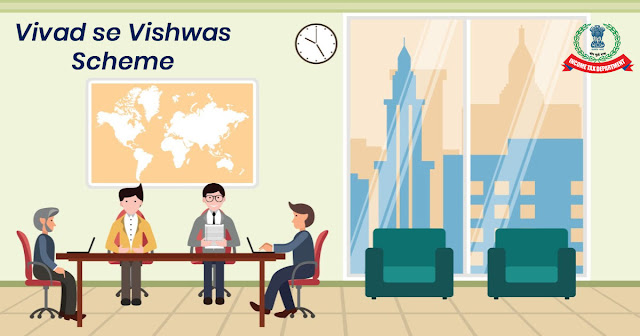Introduced by Finance Minister Nirmala Sitharaman through Union Budget 2020, 'Vivad se Vishwas' is the scheme meant to settle the entire disputed tax cases. Under this tax dispute settlement scheme (Vivad se Vishwas), the government is urging the taxpayers to pay off the less or discounted amount of their pending tax amounted till 31 January 2020. Taxpayers are requested to clear their dues before the end of Financial Year 2019-20.
Tax Experts Statements
- Related to the commencement of this provision, the finance tax expert at Deloitte said that this was the long-awaited provision that will lead to sort most of the pending tax cases. However, the limited time frame allotted by the government could prove to be a hurdle for some taxpayers. The government here is expected to extend the deadline for tax payments if any trouble arises in the near future. The ending version of this provision is yet to be introduced and will be done soon along with the procedural aspects
- Another expert in the field from EY broke his silence on the matter saying that this is a much-needed provision that will give a climax to the long-pending cases of tax payment bringing relief to the local tax officers
Finance Minister in her speech on the launch of Union Budget stated that the scheme is likely to last till 30 June 2020. The last date for ta payments are yet to be disclosed which are soon expected to reach the public through parliament highlights for now prevailing is the additional discount scheme for those who settle their dues on time so that the collection is enhanced to a certain extent.
Q1. Who are the ones eligible for taking part in Tax Dispute Settlement Scheme (Vivad Se Vishwas)?
Ans: Eligible for participating in the scheme are the taxpayers who have their tax, interest or penalty cases pending in the Income tax Appellate Tribunal, the commissioner High Court or Supreme Court on 31 January 2020. All the cases will be taken into consideration whether they are pending or the tax has been paid.
Q2. Who are the ones barred from taking part in Vivad Se Vishwas?
Ans: Tax dispute settlement scheme (Vivad se Vishwas) will not be applicable for the taxpayers in tax arrears related disputes as given below: Tax Dispute Settlement Scheme is not applicable for some taxpayers. Here is the list:
- If the tax dispute case filed is related to the assessment u/s 153A or 153C of the IT Act, then the scheme is not applicable.
- For an assessment year where the prosecution has been instituted on or before the date of filing of declaration.
- If there is a case on income attained from sources outside India or any identified asset from overseas.
- The case of assessment or reassessment presented is by any means related to the clause of section 90 or 90A of the Income Tax Act.
- Vivad se Vishwas is not for the cases where the appeal is kept in regards to the notice under section 251 of Income Tax Act.
Ans: Mentioned under the provisions of Vivad Se Vishwas "tax arrears" is the aggregate of the disputed tax along with the complete penalty and interest charged on it. The due date for submitting the tax to the government along with the complete settlement of interest and penalty is 31 March 2020.
The taxpayers who make belated applications (on or after 1 April 2020) are liable for paying an additional 10% on their aggregated disputed tax. However, if this 10% on the disputed tax grosses higher than the interest and penalties on the disputed tax, then the excess will be ignored for calculation purposes.
Q4. What is the charge levied if the dispute is related to interest or penalty amount?
Ans: The taxpayer is liable to give 25% of the aggregate disputed penalty or disputed interest before 31 March 2020. The charge is applicable if the dispute has arisen as a result of a disputed penalty or fee with the income tax department. If the taxpayers are registering themselves for the scheme on or after 1 April 2020 then the liability becomes 30% of the disputed penalty or fee.
Q5. What is the functioning of the 'Vivad se Vishwas'?
Ans: As mentioned in the bill, the concerned authority will let the taxpayer know his liability within 15 days from the date of receiving the declaration. Adhering to the provisions of this scheme, authorities will come up with the amount that is levied on the taxpayer under the scheme. The said authorities will give a certificate declaring the details about the amount under tax arrears and total payment of such amount after the determination.
Within 15 days following the arrival of the notice by authorities, the taxpayer is required to pay the amount designated by them. The designated amount is the final payable amount and is not subject to any alterations. The amount is required by the taxpayer in the form prescribed by the government.
The prompted disputed tax settlement scheme will bring in the limelight that the taxpayer is willing to resolve the tax dispute with the department under this scheme and then will decide the final amount payable by such taxpayers and such cases are likely to be recalled in the future proceedings under Income Tax Act.
Income Tax proceedings kept being different from the Vivad se Vishwas scheme, the authority is not liable to levy any interest or penalty under the Income Tax Act in regards to the tax arrears encountered in the scheme.


Comments
Post a Comment